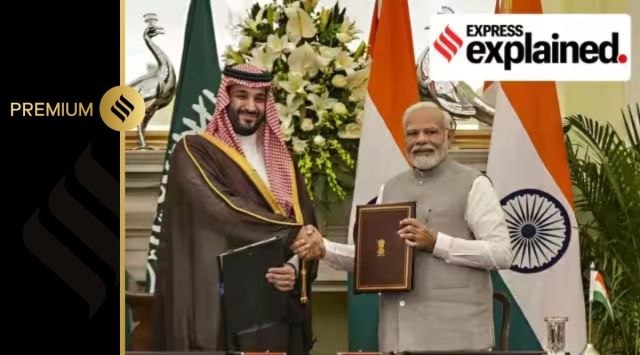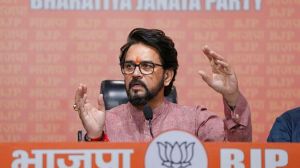MBS stayed back after the Summit for a State Visit, and co-chaired with Modi the first meeting of the India-Saudi Arabia Strategic Partnership Council. The two sides signed eight agreements, including on upgrading their hydrocarbon energy partnership to a comprehensive energy partnership for renewable, petroleum and strategic reserves, and to create a joint task force for $100 billion in Saudi investment. They also discussed the possibility of trading in local currencies, and expediting negotiations for a free trade agreement between India and the Gulf Cooperation Council of which Saudi Arabia is a member.
Prime Minister Modi described Saudi Arabia as one of India’s most important strategic partners.
The two countries established diplomatic relations in 1947. Indian government officials say they have always enjoyed cordial and friendly relations that reflect their socio-cultural and economic ties going back centuries.
The visit of King Abdullah to India in January 2006 was a watershed moment in the relationship. The royal visit resulted in the signing of the Delhi Declaration, which was followed in 2010 by the Riyadh Declaration that elevated bilateral ties to a strategic partnership.
Prime Minister Modi’s visit to Riyadh in April 2016 captured the spirit of enhanced cooperation in the political, economic, security, and defence realms. King Salman conferred on the Prime Minister the kingdom’s highest civilian honour, the King Abdulaziz Sash, indicating the importance Saudi Arabia attached to its relationship with India.
Story continues below this ad
The visit of Crown Prince Mohammed to India in February 2019 took this momentum further. It was announced that the kingdom would invest approximately $100 billion in India, and six MoUs/ Agreements were signed in a range of fields. An agreement was also signed to pave the way for Saudi Arabia to join the International Solar Alliance (ISA) launched by the Prime Minister.
Modi visited Riyadh again in October 2019. The Strategic Partnership Council (SPC) Agreement was signed during the visit, which established a high-level council to steer the Indo-Saudi relationship. The SPC now has separate subcommittees on Political, Security, Social and Cultural Cooperation, and on Economy and Investments. Twelve pacts were signed during the PM’s visit.
Pillars of the relationship
For India, there are four key elements of the strategic ties with Saudi Arabia:
1. ECONOMIC TIES
India is Saudi Arabia’s second-largest trade partner; Saudi Arabia is India’s fourth-largest trade partner. Bilateral trade in FY2022-23 was valued at $52.76 billion. Trade with Saudi Arabia accounted for 4.53% of India’s total trade in FY23.
Story continues below this ad
The joint statement issued during MBS’s visit said, “Both sides praised the burgeoning trade ties and noted that bilateral trade has increased to more than US$52 billion in 2022-23, marking a growth of more than 23%.”
As of January 2022, there were 2,783 Indian companies registered as joint ventures/ 100% owned entities with investments worth approximately $2 billion in the kingdom. Indian companies and corporate groups such as L&T, Tata, Wipro, TCS, TCIL, and Shapoorji Pallonji have established a strong presence in Saudi Arabia.
Saudi direct investments in India amounted to $3.15 billion (as of March 2022). Among the major investors are Aramco, SABIC, Zamil, e-holidays, and the Al Batterjee Group. Saudi Arabia’s Public Investment Fund (PIF) has invested in several Indian startups such as Delhivery, FirstCry, Grofers, Ola, OYO, Paytm, and PolicyBazaar through SoftBank Vision Fund.
In June 2020, PIF announced an investment of $1.49 billion (2.32% stake) in Reliance Industries’ Jio Platforms, and in November 2020, an investment of $1.3 billion (2.04% stake) in Reliance Retail Ventures Ltd. In May 2020, Saudi Agricultural and Livestock Investment Company (SALIC) acquired a 29.91% stake in Daawat Foods Ltd with an investment of $17.23 million. In July 2021, PIF invested in India-based healthtech Healthifyme’s $75 million Series C funding round.
Story continues below this ad
Among the major proposed investments is the $44 billion West Coast Refinery & Petrochemicals Project in Maharashtra, which is being jointly built by Saudi Aramco, Abu Dhabi National Oil Company, and an Indian consortium that includes Indian Oil Corporation, Hindustan Petroleum Corporation, and Bharat Petroleum Corporation.
2. ENERGY COOPERATION
Saudi Arabia is a key partner for ensuring India’s energy security, and was its third largest crude and petroleum products source for FY23. India imported 39.5 million metric tonnes (MMT) of crude from the country in FY23, amounting to 16.7% of India’s total crude imports.
India’s LPG imports from Saudi Arabia stood at 7.85 MMT, and 11.2% of its total petroleum product imports, in FY 23.
3. DEFENCE PARTNERSHIP
Story continues below this ad
The defence partnership has witnessed tremendous growth in recent years. Then Army Chief General Manoj Mukund Naravane made a landmark visit to Saudi Arabia in December 2020.
There is extensive naval cooperation between India and Saudi Arabia, and two editions of the bilateral naval exercise, Al Mohed al Hindi, have been concluded so far. Both sides also cooperate closely in the domain of defence industries and capacity-building.
On defence ties, the joint statement said that the two sides commended their deepening cooperation, and agreed to continue work including joint exercises, training and high-level visits, and to “consider possibilities of joint development and production of defence equipment”.
4. INDIANS IN SAUDI
The Indian community in the kingdom is more than 2.4 million strong, widely respected for its contribution to the development of Saudi Arabia, and seen as a living bridge between the two countries. The joint statement said the Indian side thanked the Saudi side for taking excellent care of the Indian diaspora residing in the kingdom, supporting the evacuation of Indian nationals stranded in Sudan through Jeddah under Operation Kaveri, and for facilitating Indian Hajj and Umrah pilgrims.
Story continues below this ad
The importance of MBS
After being named Prime Minister, a post traditionally held by the King, Crown Prince Mohammed bin Salman has consolidated his power. At age 38, he is Saudi Arabia’s de facto ruler, and has been first in line to succeed his ailing father as King since 2017.
Through his Vision 2030, MBS has positioned himself as Saudi Arabia’s reformer-in-chief. He has ensured significant changes in the country’s ultra-conservative society, where women have got the right to drive, and where cinemas have been opened, foreign tourists are welcomed, and pop stars and high-profile sports matches have been hosted.
But he has a reputation for being ruthless with critics — he has been accused by US intelligence of having ordered the killing of the dissident journalist Jamal Khashoggi in 2018, an allegation that the Saudis have denied. In 2017, Saudi authorities detained about 200 princes and businessmen in Riyadh’s Ritz-Carlton hotel in a sweeping anti-corruption crackdown.
MBS has engaged with China, he is moving towards rapprochement with Iran and Israel, and is also now consolidating the Saudi partnership with the US, India, and Europe. Riyadh still helps Pakistan with economic aid, even while strategically engaging with New Delhi.
Story continues below this ad
India and Saudi Arabia have stressed the importance of strengthening security cooperation in the field of combating terrorism and its financing.
“Both sides emphasized that terrorism, in all its forms, remains one of the gravest threats to humanity. They agreed that there cannot be any justification for any act of terror for any reason whatsoever. They rejected any attempt to link terrorism to any particular race, religion or culture. Both sides called on all States to reject the use of terrorism against other countries, dismantle terrorism infrastructure where it exists and bring perpetrators of terrorism to justice swiftly,” the joint statement said.
The statement also “stressed the importance of achieving security and stability in Afghanistan and forming an inclusive government that represents all spectrums of the Afghan people, and not allowing Afghanistan to be used as a platform or safe haven for terrorist and extremist groups”.
“He is determined to give Saudis a shining, prosperous future, and exercises an unflinching willingness to crush his foes. Combined in different doses, those attributes will likely guide his actions far into the future,” Hubbard wrote. New Delhi is not wasting any opportunity to engage the young Crown Prince.






































